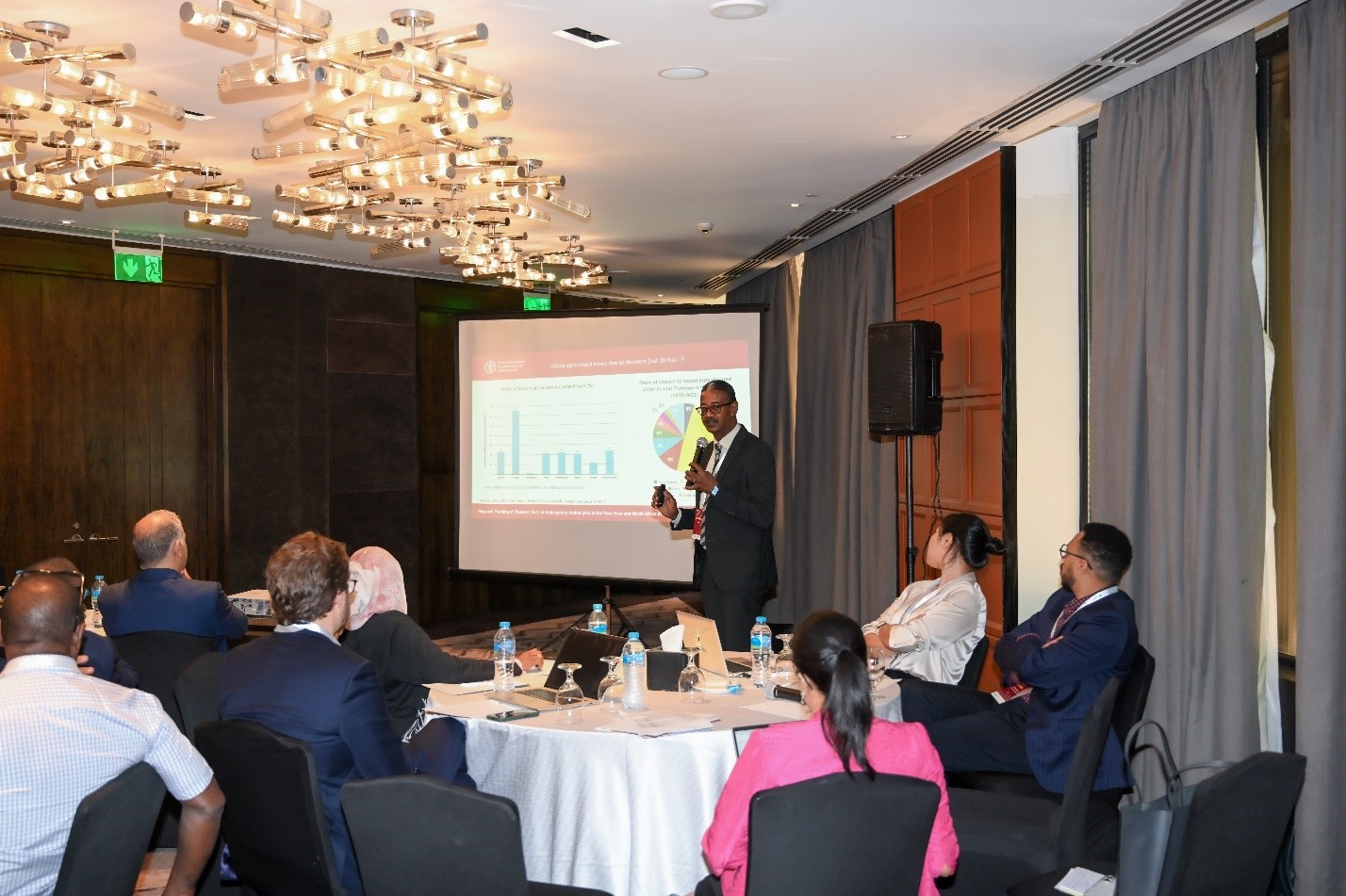Strengthening regional capacities on anticipatory action: FAO convenes Training of Trainers in Cairo

©FAO
The Food and Agriculture Organization of the United Nations (FAO) Regional Office for the Near East and North Africa (RNE) successfully concluded a Regional Training of Trainers (ToT) on anticipatory action (AA), held from 21 to 23 September at the Semiramis Intercontinental Hotel in Cairo, Egypt.
The training brought together 28 participants from nine countries across the region to strengthen technical knowledge and facilitation skills on anticipatory action, a proactive approach that enables governments, institutions, and communities to act ahead of predicted man-made and climate-induced shocks and reduce humanitarian impacts before they fully unfold. Implementing timely anticipatory action interventions, for example vaccinating livestock and rehabilitating critical water infrastructure prior to forecast flooding, can reduce the impact of shocks on agriculture, food security, and livelihoods. Acting before a crisis is also almost always more cost-effective than responding after hazards strike, maximizing the impact of finite humanitarian resources. Evidence shows that every dollar invested in anticipatory action can result un four to eleven dollars in avoided losses and other benefits.
The NENA region faces increasing risks from multiple shocks and hazards, including conflict, climate extremes, economic volatility, and transboundary animal and plant pests and diseases which continue to disrupt agricultural production, water resources, and rural livelihoods. Traditional reactive humanitarian responses are no longer sufficient to address the impact of these recurring threats, yet anticipatory action in agriculture remains underdeveloped, fragmented, and underfunded in the region. To meet this challenge, the ToT was designed to equip participants with the skills to design and implement effective AA systems, ranging from early warning information and risk analysis to financing mechanisms and institutionalisation, while also empowering them to train others, multiplying impact across countries and communities.
Over the three days, participants engaged in interactive sessions covering risk and vulnerability analysis, early warning systems, trigger development, financing mechanisms, institutionalisation of AA, and monitoring and evaluation frameworks. In addition to technical knowledge, the ToT focused on enhancing participants’ capacity to deliver impactful training programmes, ensuring a multiplier effect at national and community levels.
The event was organised under RNE’s Regional Priority 4 (RP4, Building Resilience to Multiple Shocks) and facilitated by FAO experts. It culminated with the launch of the report “Regional mapping of anticipatory action capacities in the Near East and North Africa agricultural sector”, produced jointly by FAO and the International Food Policy Research Institute (IFPRI), which highlights existing gaps and opportunities to scale up AA in the region.
Abeer Sirawan, Head of Poultry Husbandry Department and Head of Economic Matters and Monitoring Service for the Ministry of Agriculture in Lebanon, a participant at the ToT, welcomed the training’s practical approach. “This training not only enhanced my technical understanding of anticipatory action, but also gave me the tools to train others in my country. I now feel more confident in supporting institutions to anticipate risks and act before disasters strike,” s/he said.
The training also served as a platform to foster a regional network of AA facilitators and trainers who will continue to promote anticipatory approaches within their institutions and countries, contributing to more resilient agrifood systems across NENA.
The initiative is part of RNE RP4, which strengthens five interrelated resilience capacities: anticipative, preventive, absorptive, adaptive, and transformative. Through five strategic action areas, RP4 supports countries in understanding multiple risks, strengthening disaster risk governance, reducing vulnerabilities, advancing the One Health approach, and enhancing anticipatory actions, emergency preparedness, and response. This holistic approach aims to protect livelihoods, safeguard food security, and advance progress toward the Sustainable Development Goals in a region where more than 75 million people risk facing hunger by 2030 if current trends persist.
